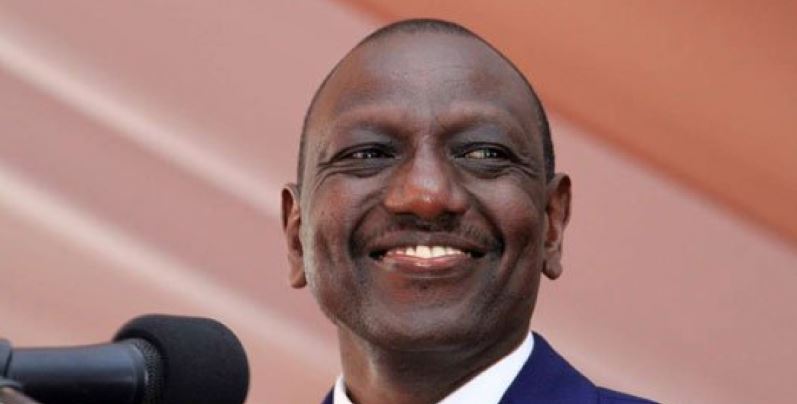
By Cege Wa Mahiga
The 2022 Supreme Court ruling was meant to reinforce faith in Kenya’s democracy. Instead, its dismissive language—phrases like “hot air,” “fishing expedition,” and “wild goose chase”—raised serious questions about judicial temperament. This op-ed calls for accountability, humility, and a return to respectful justice.
In the aftermath of Kenya’s 2022 presidential election, the Supreme Court’s judgment was expected to embody judicial excellence—measured, impartial, and dignified. Instead, what the nation witnessed was a ruling laced with language that fell far short of the gravitas such proceedings demand. Describing petitioners’ claims as “hot air”, likening their pursuit of justice to a “wild goose chase”, and calling their case a “fishing expedition” were not just inappropriate expressions—they were deeply damaging to the image of the Court.
This was more than rhetorical excess. It was a breach of the solemnity and neutrality that the Supreme Court is duty-bound to uphold. These flippant, dismissive phrases—delivered by none other than the Chief Justice—risk turning a sacred institution of justice into a spectacle, eroding public trust and feeding the dangerous perception of judicial bias. Put plainly, the Supreme Court of Kenya should never again sound like a kangaroo court.
A Court’s Words Carry the Weight of a Nation
Judicial language is not casual. It is precedent. It shapes public perception, defines national values, and reverberates far beyond the courtroom. When a court of last resort uses language that mocks, ridicules, or belittles litigants—especially in a matter as grave as a presidential election—it not only devalues the legal arguments presented, but also insults the public’s right to a fair and respectful hearing.
Whether the petitioners’ claims were ultimately rejected is beside the point. The issue is how they were rejected. Citizens must never be made to feel foolish for invoking their constitutional right to question the integrity of an election. Justice should be delivered with clarity, not contempt; firmness, not flair.
A Dangerous Precedent for Judicial Conduct
When the highest court descends into rhetorical put-downs, it sends a message that some citizens’ concerns are not worth serious legal attention. That message is toxic to democracy. It discourages civic engagement and legitimizes elitism within the justice system.
Moreover, the choice of words like “not mathematically sound” and “kills and bats voters”—used to dismiss the logic of voter turnout arguments—further undermined the seriousness of the moment. These are not terms of constitutional reasoning. They are expressions of impatience, if not outright disdain.
We must ask: if the Supreme Court does not model judicial restraint, who will?
Justice Must Be Delivered With Dignity
The judiciary must always rise above political tensions and partisan tones. Its legitimacy rests not only on its decisions but also on how it communicates them. It is one thing to reject a petition based on law and evidence; it is quite another to publicly shame those who dared to bring it forward.
A court that speaks with derision loses moral authority. It becomes a stage—not for justice—but for humiliation cloaked in legal robes. That is not justice. That is theatre.
The Whole Bench Must Take Responsibility
The Supreme Court of Kenya in 2022 consisted of seven justices: Chief Justice Martha Koome, Deputy Chief Justice Philomena Mwilu, and Justices Mohamed Ibrahim, Smokin Wanjala, Njoki Ndung’u, Isaac Lenaola, and William Ouko. The ruling in the presidential election petition was unanimous—and to date, not a single member of the bench has publicly distanced themselves from the Chief Justice’s language.
This silence speaks volumes. The phrases “hot air,” “fishing expedition,” and “wild goose chase” were not an individual’s quip—they are now part of a collective judgment. By failing to clarify or disassociate from that language, the entire bench bears responsibility. And that is not a minor failing—it is gross, it is cross, and it is wrong. Judicial silence in the face of public injury is complicity.
A Call for Judicial Recommitment
This moment must be a wake-up call—not just for the judiciary, but for the nation. We must insist that our highest court recommits to its constitutional role with measured language, unwavering impartiality, and deep respect for all parties who appear before it.
Let the 2022 election ruling be the last time we hear dismissive idioms from the bench of the Supreme Court. Let it be the last time the pursuit of truth is mocked rather than respected. Let it mark the point where we say, with clarity and conviction:
Never again should the Supreme Court of Kenya—or any democratic nation—speak like a kangaroo court.
